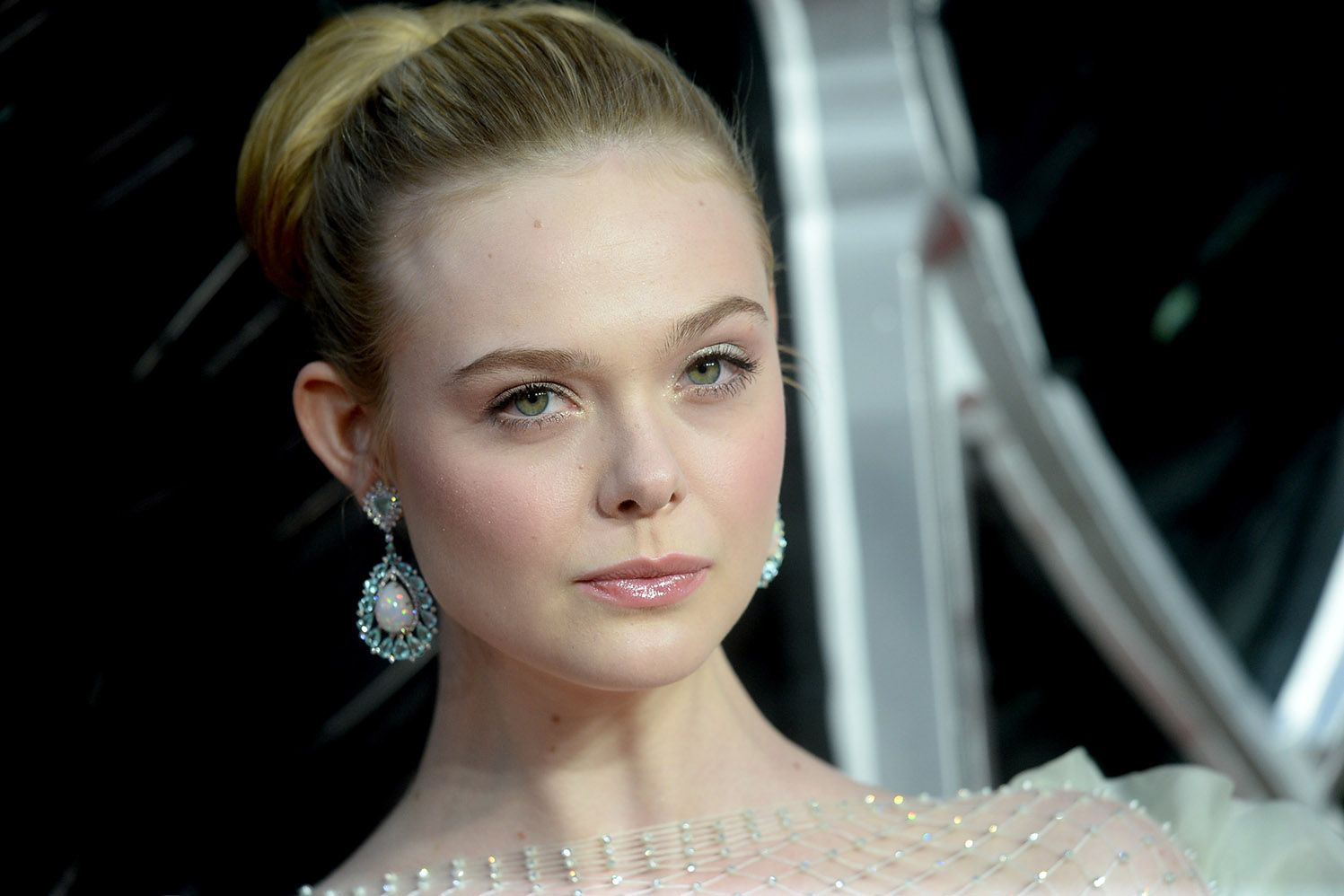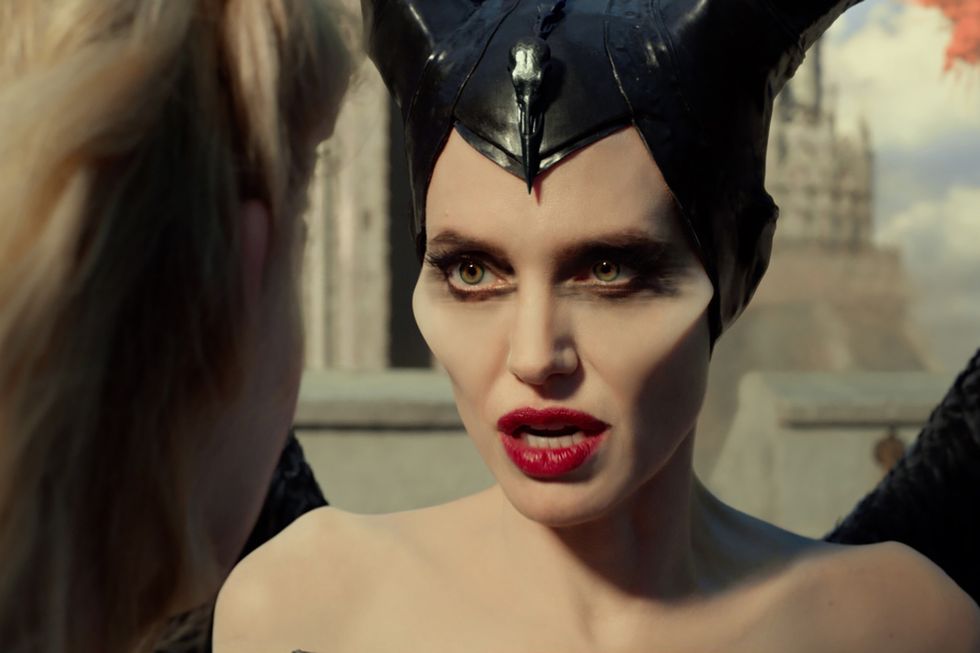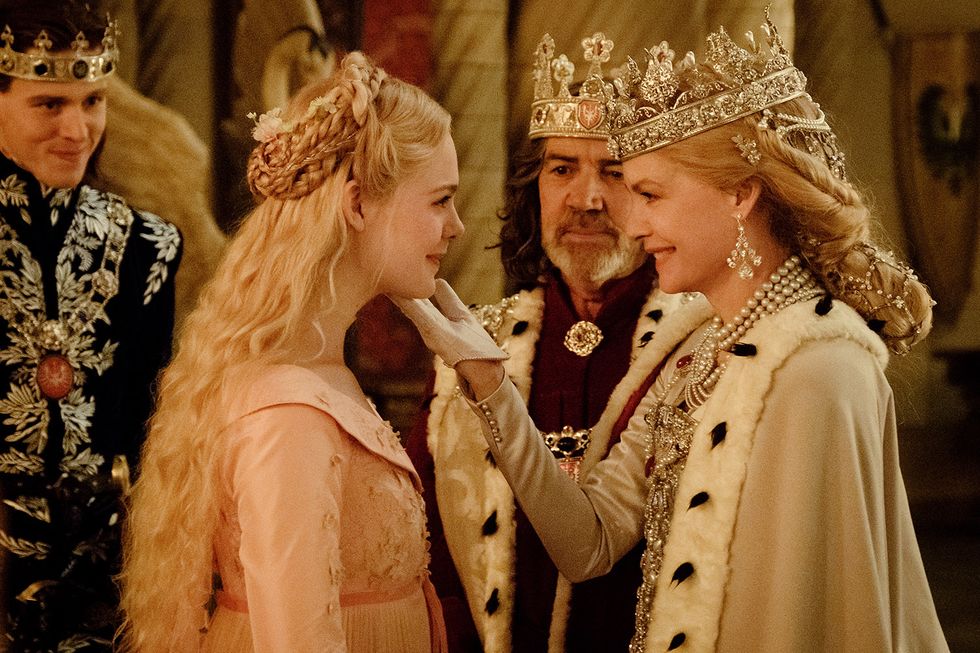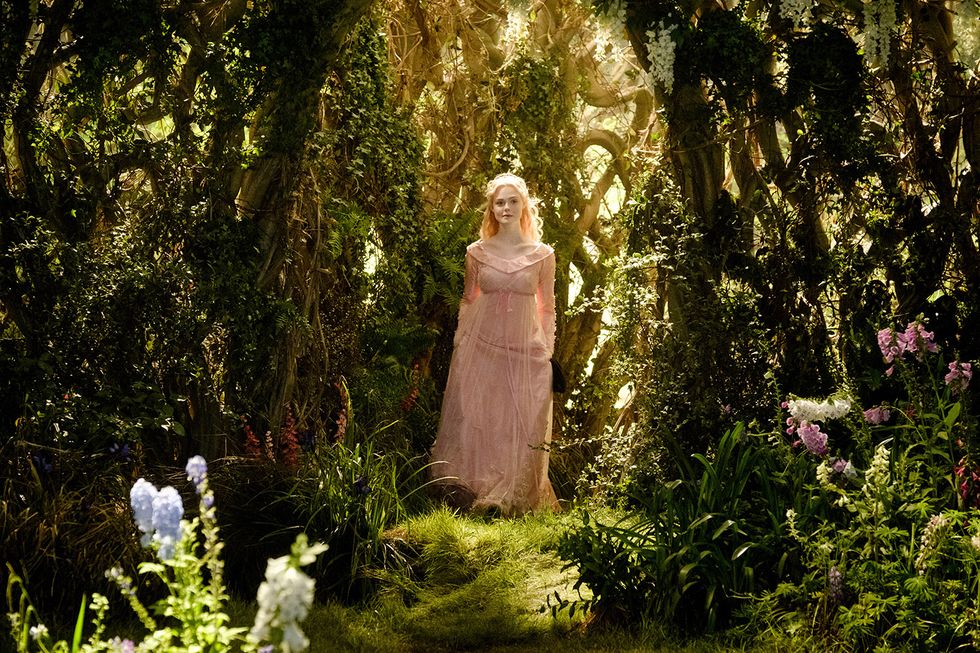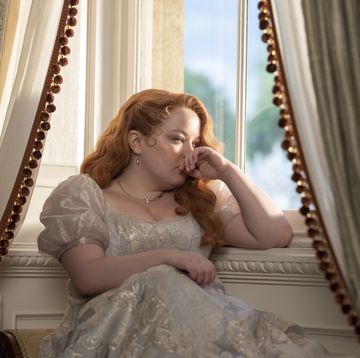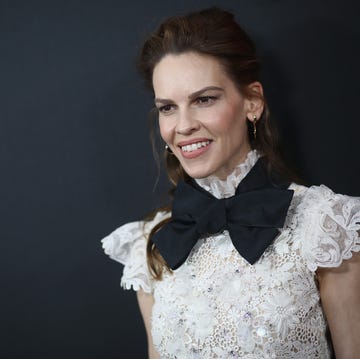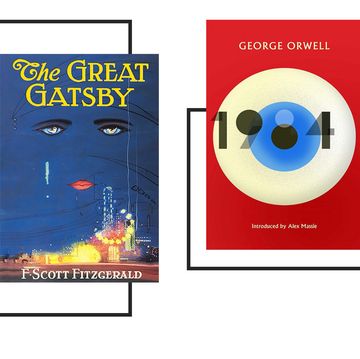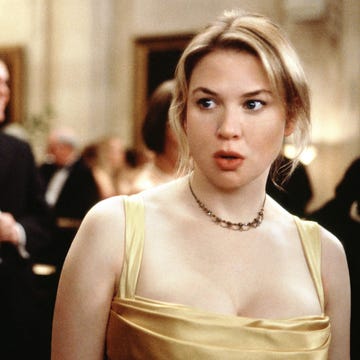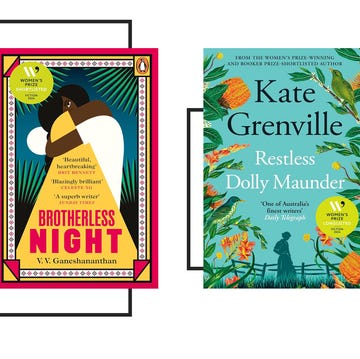There is a homely storybook quality to the Maleficent sequel, which lulls you into a whimsical world of spells and sorcery where fairies play catch with raindrops. Five years ago, the original film – a retelling of Sleeping Beauty – was applauded for its feminist twist ending in which maternal love (in the form of Angelina Jolie’s maligned, misanthropic godmother) won out over romance and broke the curse condemning Aurora (Elle Fanning) to eternal unconsciousness. “It was one of the first stories where a mother’s love triumphed,” Fanning says now. “The movie showed that many different types of affection are important, it’s not just romantic love that exists.”
The actress, who was just 14 when she first played the somnolent princess, brings a maturity to the character this time around, her demureness blossoming into a resolute determination to best serve her people as Queen of the Moors. The franchise, it seems, has grown up with its star: Maleficent: Mistress of Evil proving more ambitious in scope than its predecessor. Children will certainly derive most pleasure from the film, and yet its open-armed political agenda – preaching tolerance and social responsibility – is of value to us all.
“What’s so beautiful is that these Disney films have such strong messages,” says Fanning. “And we’re not talking down to children, which is important. The youth of today have a very strong voice and can make so much change. Our film is set in this fantastical world, and it is a fairy tale, but it’s very much grounded in the reality of serious issues going on today – like strength in diversity, the dangers of trying to separate people who are different, respect for the environment... Fairy tales are a great device to tell a bigger story.”
Indeed, as much as Maleficent stays true to its genre with its big white weddings and happily-ever-afters, the film admirably wades into murky ideological waters with its exposures of corrupt leadership (Michelle Pfeiffer’s loathsome monarch) and even genocide (fairies are kept in glass jars awaiting extermination).
Unsurprisingly, when considering the real-life impact of young activists such as Malala Yousafzai and Greta Thunberg, it is the newer royals who strive for unity, while their elders propagate a culture of fear. “We can stand together,” says Aurora’s partner Prince Phillip (Harris Dickinson) in a rallying speech. “I won’t allow her [the Queen’s] hatred to ruin my kingdom.”
As a member of Generation Z, how does Fanning ensure that her opinion is heard and valued? “For me, it’s about not straying from who I am inside,” she explains. “Today you can get lost in wanting to accommodate people, especially in the age of social media, but I take the time to be the best version of myself that I can be. Aurora, too, is not changing for anyone. She lives between both worlds [the fairy and human] and she can see the bigger picture of people existing in harmony. Her best quality is how she can view that with kindness. People often look at kindness as a weakness, but it’s her strength.”
Although Maleficent: Mistress of Evil is anchored by a surprisingly liberal mindset, classic fairy tales are widely accused of being regressive due to their sexist portrayals of women, and complete lack of sexual and racial diversity. This has led some parents, among them Keira Knightley and Kristen Bell, to ban their children from reading them.
What does Fanning make of this? “I understand. I mean, Sleeping Beauty doesn’t have a lot to do in the original animated version – she just falls asleep!” the actress says, laughing. “What’s so great is that now we can reinvent these stories. It’s beautiful seeing Frozen and Moana, and I’m super excited about the casting of Halle Bailey in The Little Mermaid. It’s a step in the right direction, for sure. Even though I appreciate the animated films, because I watched them growing up, it’s a new generation and we have to move forward.”
Fairy-tale princesses perceive marriage as the be all and end all of their existence, and consider riding off into the sunset with a noble suitor the pinnacle of their achievement. The problematic nature of this stems from the fact that the personalities of characters like Cinderella or Snow White almost entirely boil down to this male-centric ambition; but this doesn’t mean that desiring a husband is a less legitimate life choice.
“Aurora is a very romantic princess – she dreams of being married and becoming a mother – and there’s nothing wrong with that,” says Fanning firmly. “It doesn’t make a woman less strong because she wants that. I think that’s actually a very modern take.” Another detail that hammers home the progressiveness of Aurora’s decision is that through her nuptials (which, for all intents and purposes, are traditional) she hopes to bring harmony to two feuding kingdoms (a commendable pacifist goal).
Fanning is cognisant that this movie appeals to a young fanbase and, as such, wants little girls watching to feel empowered by her presentation of Aurora. “I used to dress up as Disney princesses, I was very much that girl,” she admits. “I do feel a great responsibility to those girls to show a princess that I would be proud of them thinking is a role model. Being a modern Disney princess is about being true to yourself, the most you you can be. Aurora is kind and accepting and soft, and there is such a strength and vulnerability in her softness.”
Despite Maleficent’s ever looming darkness, Fanning believes fairy tales can act as a welcome tonic to our troubled times. “It’s nice to go to the theatre and escape for a couple of hours, to see these beautiful creatures and worlds that we don’t live in. It’s the magic of cinema.” There may be fairies and sprites and elves, but perhaps the most magical element of the movie is its ‘build bridges, not walls’ mentality that flies in the face of today’s all too prevalent xenophobia.
‘Maleficent: Mistress of Evil’ is released in cinemas on Friday.
